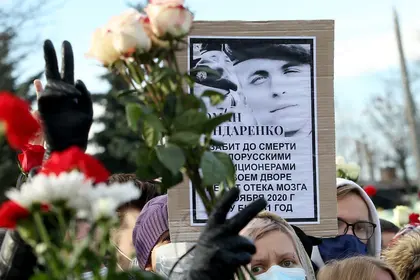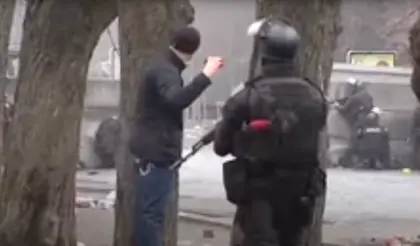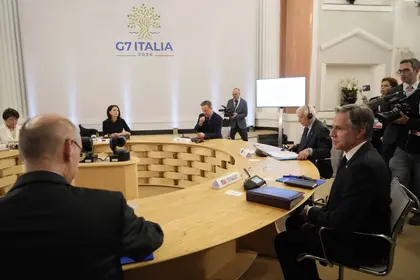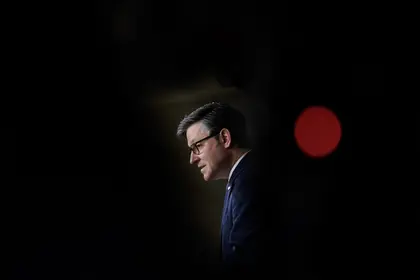Ukraine and six more countries have joined the European Union’s sanctions against Belarusian officials for rigging the presidential vote and carrying out violent repressions against peaceful protesters, according to the statement of the European Council released on Nov. 20.
The announcement came on the same day when thousands of people gathered in Minsk at a funeral of Roman Bondarenko, a 31-year-old man who died in a hospital after being severely beaten by masked men who were believed to be law enforcers.
His death became the latest flashpoint in pro-democracy rallies that have been held for over 100 days since they broke out in protest at the results of the Aug. 9 presidential elections, in which the president of 26 years Alexander Lukashenko claimed a landslide victory.
On Nov. 20, North Macedonia, Montenegro, Albania, Iceland, Liechtenstein, Norway, and Ukraine aligned themselves with the Council’s decision from Oct. 2 to impose travel ban and assets freeze against 40 Belarusian officials from the Interior Ministry, Central Election Commission, Okrestina detention center in Minsk, and the State Security Committee.
“They will ensure that their national policies conform to this Council Decision,” the statement read.
Ukraine’s Foreign Ministry has not made any statements regarding joining the sanctions against Belarusian officials. The Kyiv Post has not received a reply by the time of this publication. Previously, the ministry said that Ukraine intended to join sanctions against Belarus.
Since its adoption in October, the EU sanctions list has been expanded to 59 officials, including Lukashenko and his son and National Security Adviser Viktor Lukashenko.
For now, Ukraine and six other countries will only impose sanctions against the 40 officials from the original list. Sanctioning all 59 officials, including Lukashenko, will require a separate decision, according to the Council’s spokesman Peter Sarno. The same applies to any sanctions that the EU might add in the future.
Meanwhile, the EU is preparing to impose a new round of sanctions in response to the continuous brutality against the Belarusian people. They will target not only more senior officials but also institutions and firms, Josep Borrell, the EU’s High Representative for foreign policy said at a press conference on Nov. 19.
“There is no positive sign at all from the Lukashenko regime, which continues to refuse to engage in any kind of discussion with the EU, to receive any mission from the OSCE, and continues the repression against the people,” Borrell said.
Besides sanctions, the EU states will consider Borrell’s proposal to downgrade all contacts and cooperation with Belarus and downgrade the country’s participation in the Eastern Partnership to non-political level, among other measures.
Ukraine, the EU, Canada, the United States, and the United Kingdom rejected the results of the presidential election in Belarus. Backed by the Kremlin, Lukashenko, however, held a secret inauguration and remains in power using widespread detentions, torture, and prosecution.
The Belarusian dictator has blamed it on “the foreign interference in orchestrating the protests” from Poland, Czech Republic, Lithuania, Ukraine, and the US.
His opponent Svetlana Tikhanovskaya, who is believed to have won the election, was forced to flee Belarus, where her husband and fellow opposition leader Maria Kolesnikova are held in prison.
Since August, over 25,000 people have been detained and four protesters died.
You can also highlight the text and press Ctrl + Enter







Comments (0)